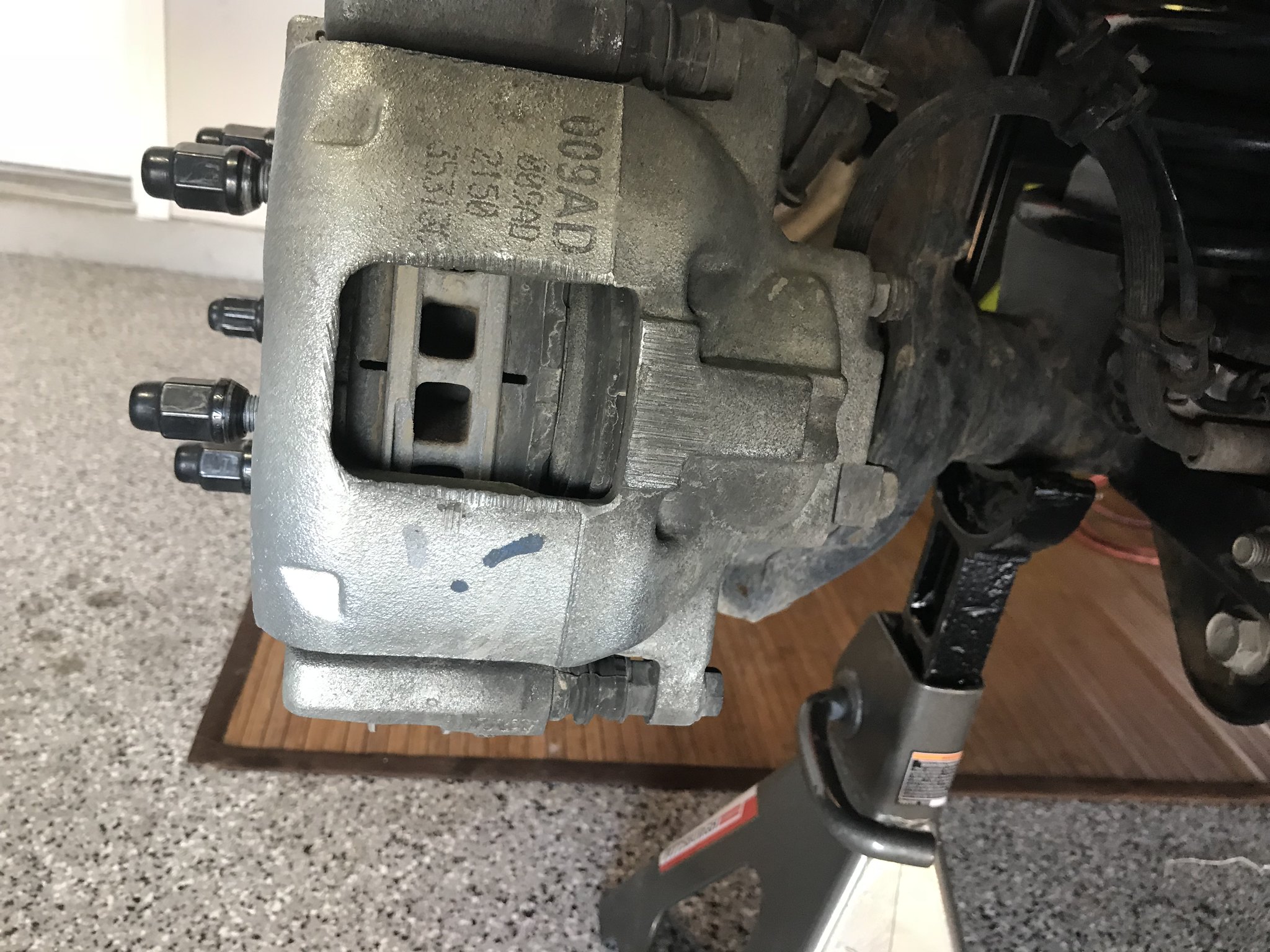TheWeekendWagon
Member
I do all of my own maintenance on my JK and every time I change the oil and rotate the tires I take a look at the brake pads. I was always very impressed with how long they were lasting, especially on such a heavy vehicle...but now as the miles keep piling up I am starting to wonder if my brakes are working properly. First off, I just had to change the rear brake pads after 70,000 miles...which seems like a really long time for me. But it seems as if the fronts are hardly wearing down at all. This is a photo of the front pads I took today, after 70,000 miles....

First off, I find it odd that any of the pads lasted that long but I am even more skeptical that the fronts are lasting so much longer than the rears. That doesn't make sense to me on such a heavy vehicle.
I don't feel as if the braking power or braking bias is much different than any other car I have driven and it feels to me as if the fronts are at least doing some of the work. I bought the car brand new so if there's a problem with the bias or the front lines or something it came from the factory like that. The entire brake system is 100% original and never been touched aside from the rear pads I just did a few hundred miles ago now.
I just thought I would ask here first to see if it was normal for the fronts to out-last the rears on these things before I go diving into my brake system. Thanks in advance!

First off, I find it odd that any of the pads lasted that long but I am even more skeptical that the fronts are lasting so much longer than the rears. That doesn't make sense to me on such a heavy vehicle.
I don't feel as if the braking power or braking bias is much different than any other car I have driven and it feels to me as if the fronts are at least doing some of the work. I bought the car brand new so if there's a problem with the bias or the front lines or something it came from the factory like that. The entire brake system is 100% original and never been touched aside from the rear pads I just did a few hundred miles ago now.
I just thought I would ask here first to see if it was normal for the fronts to out-last the rears on these things before I go diving into my brake system. Thanks in advance!

